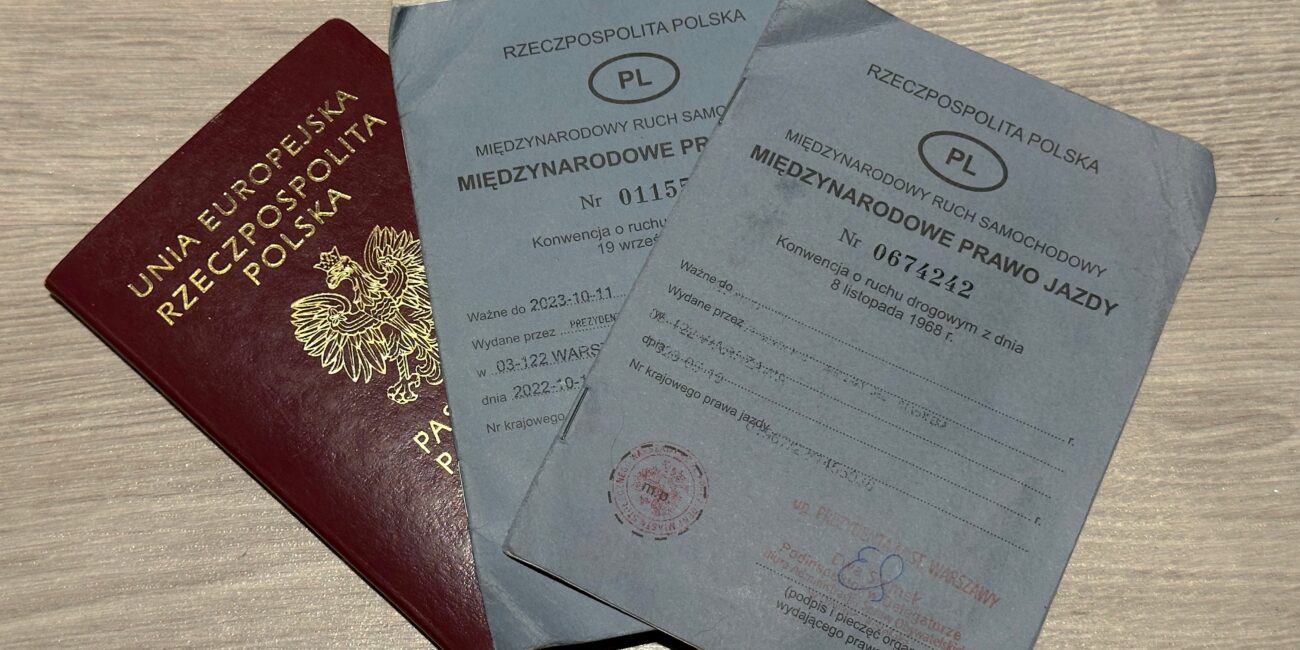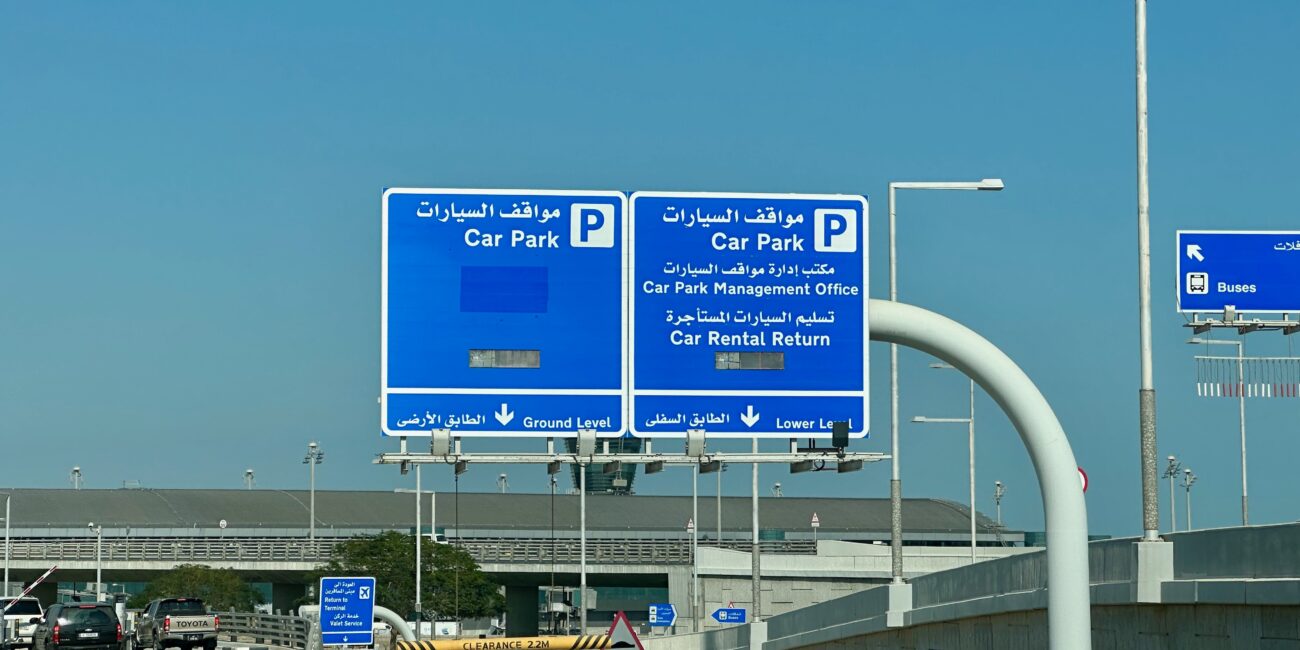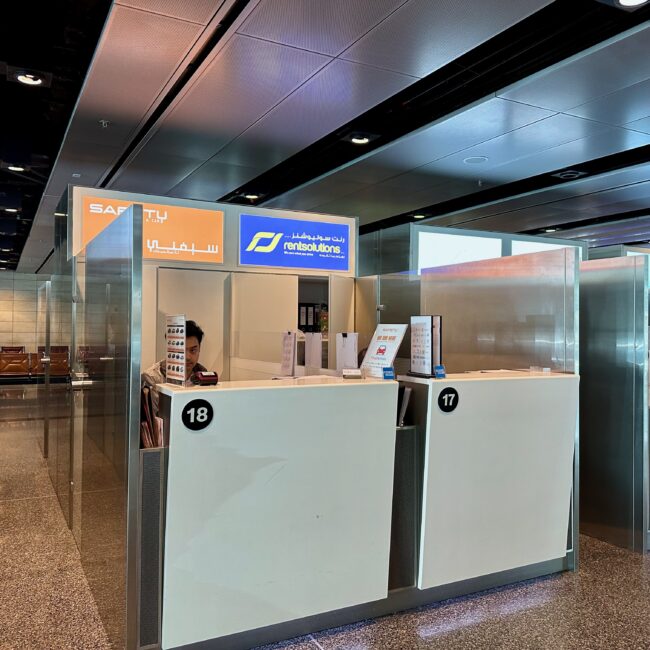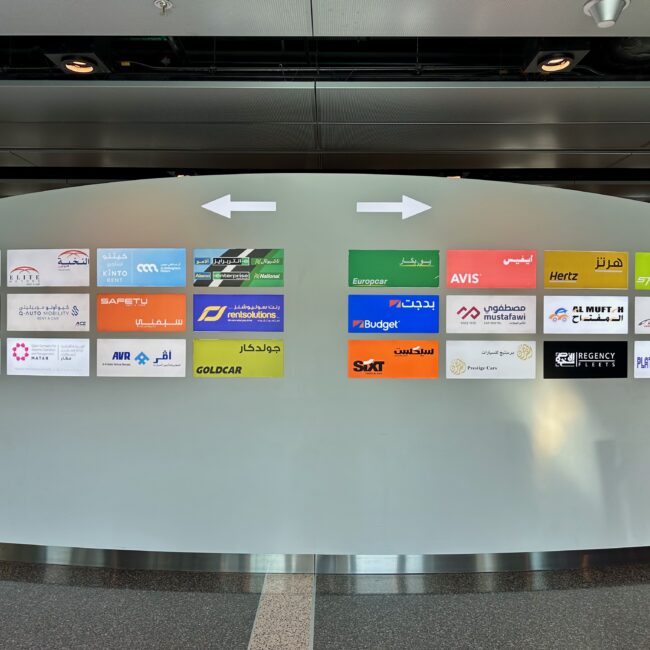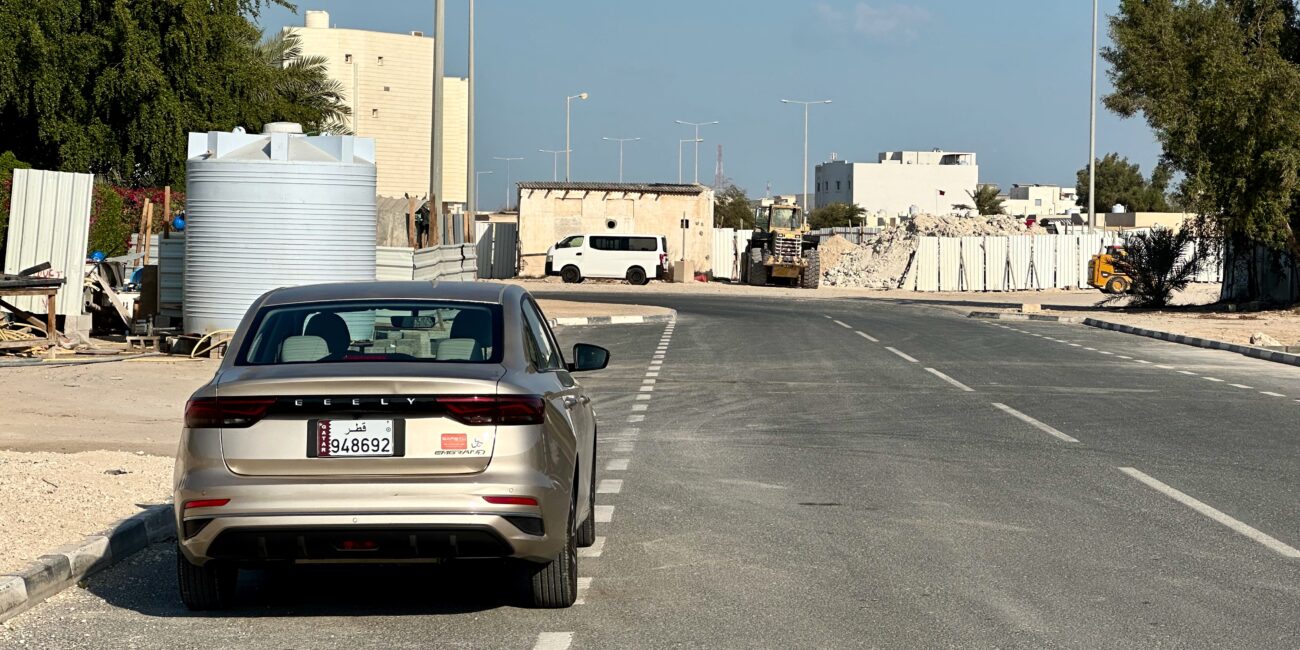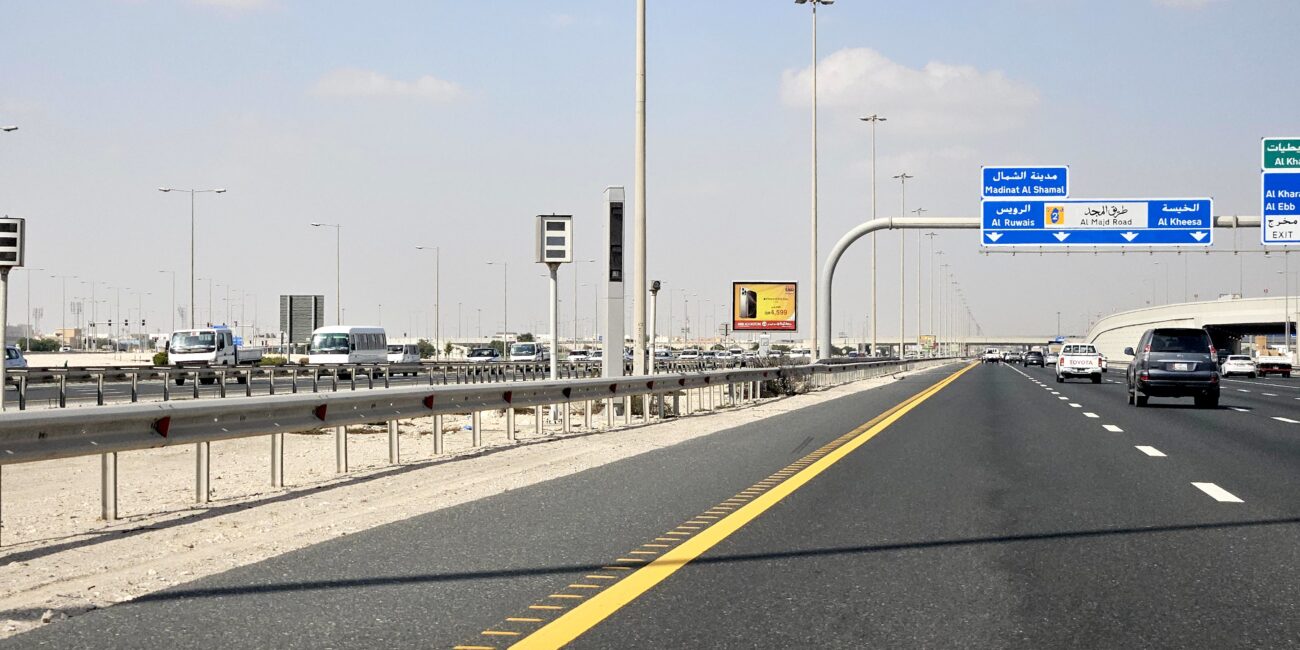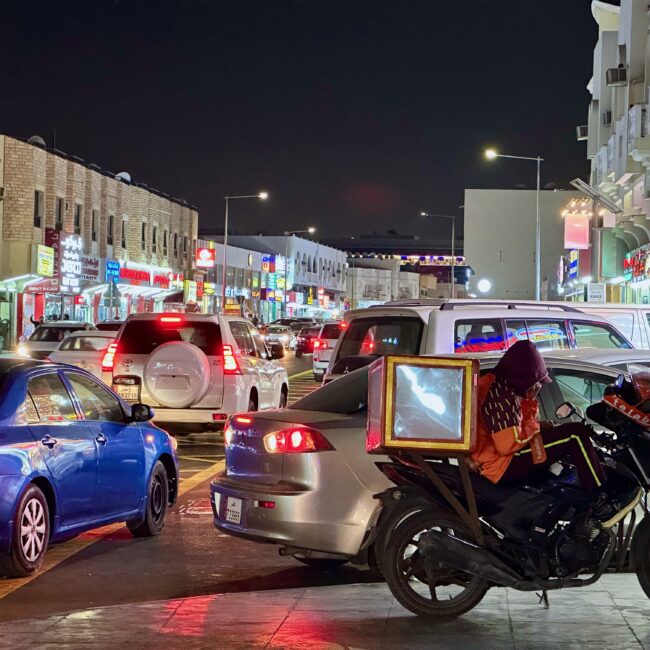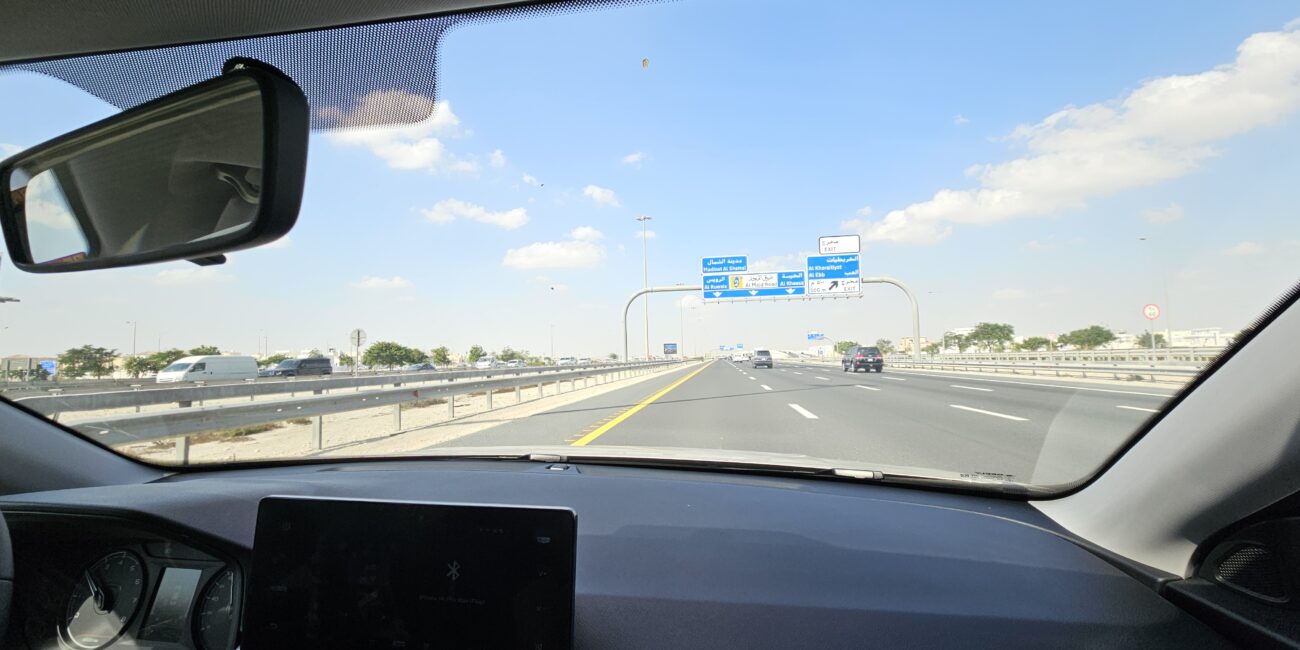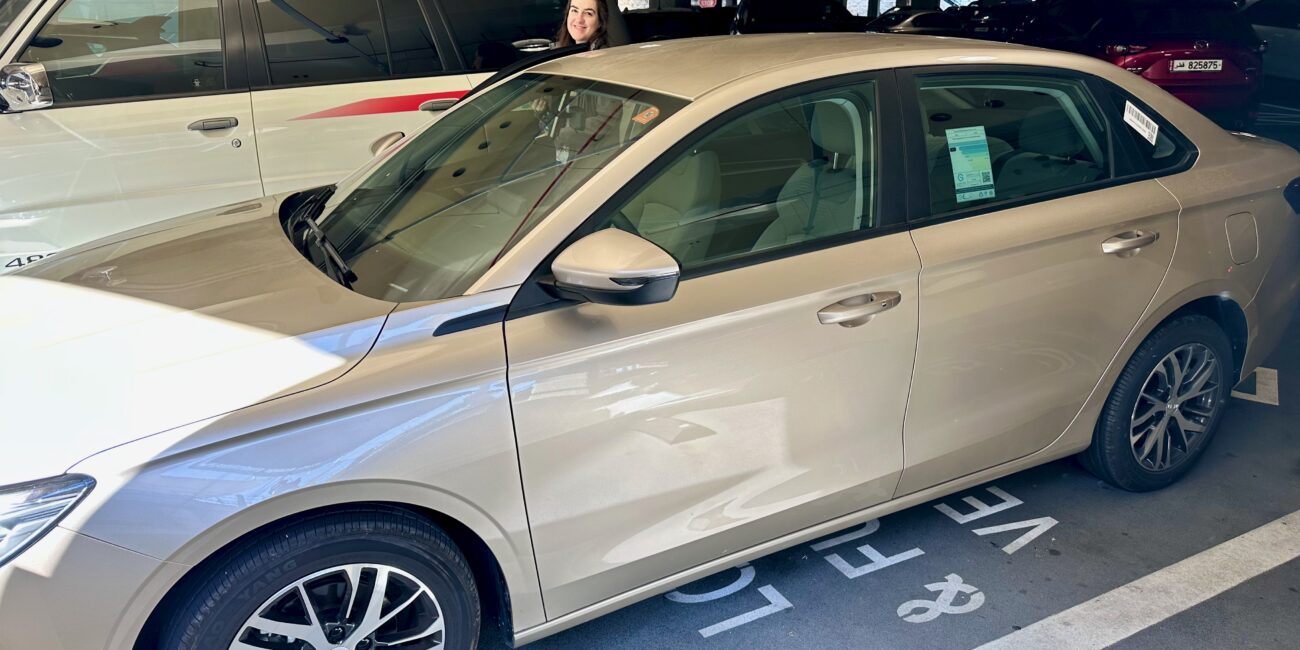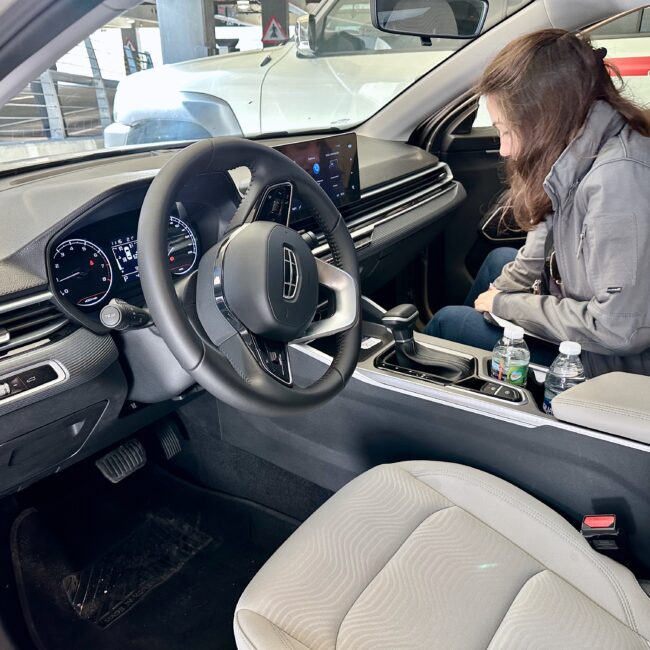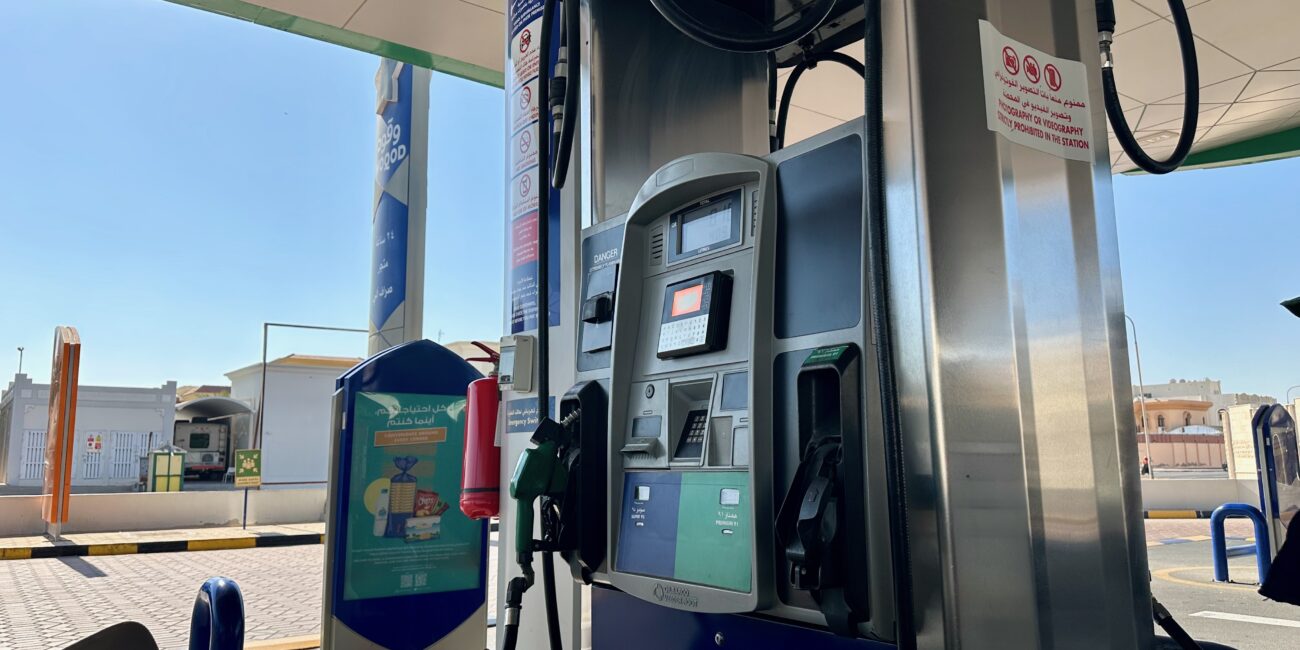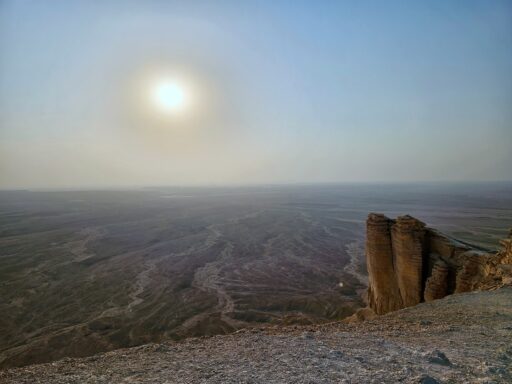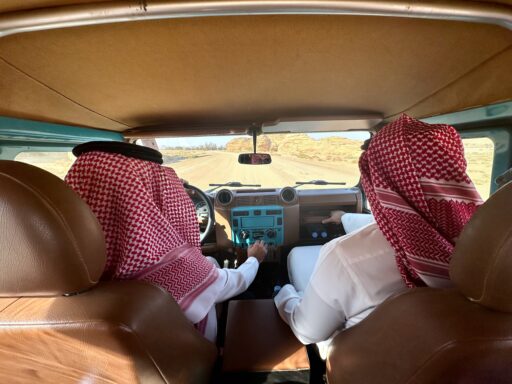This post is also available in:
Polski
Hello! 👋
Great to have you here! If you’re planning a trip to Qatar and considering renting a car, this article is just what you need. We’ll guide you on how to prepare for your rental, what documents you’ll need, and what to watch out for to ensure a hassle-free drive on Qatar’s roads. 🚗
We also encourage you to check out our previous posts. In our article about the top attractions in Doha, you’ll find plenty of inspiration for exploring the capital – from the traditional Souq Waqif to modern districts like Lusail City. And if you’re curious about our personal reflections, don’t miss our summary of our trip to Qatar, where we share insights and interesting facts about this unique country. 🌍
Requirements for traveling in the country
To ensure a hassle-free experience when renting a car in Qatar, it’s important to meet all the basic requirements and have the necessary documents with you. Here’s what you need to prepare:
- Passport: Your passport must be valid for the entire duration of your stay in Qatar. Some rental companies may also require it to be valid for at least six months beyond your planned departure date.
- Driver’s License: If your license wasn’t issued in one of the Gulf Cooperation Council (GCC) countries, the rental company may require an International Driving Permit (IDP). It’s a good idea to confirm this in advance – while many companies accept European Union licenses, having an IDP is a safer option.
- Credit Card: Most car rental companies in Qatar require a credit card to secure the rental. It’s crucial to ensure the company blocks the deposit on your card rather than charging it. We once encountered a situation where a rental company charged the deposit instead of blocking it, leading to unfavorable currency conversion rates and the need to file a chargeback. Always check the payment terms beforehand to avoid such surprises.
- Minimum Driving Age: In Qatar, the minimum age to rent a car is typically 21 years. However, for luxury models, you may need to be at least 25 years old. Be sure to check the specific requirements of your chosen rental company.
- Deposit: The deposit blocked on your credit card varies depending on the type of car and the rental company. It typically ranges from 1,000 to 3,000 QAR. Make sure your credit card limit can accommodate this amount.
International Driving License
If you’re planning to rent a car in Qatar, an International Driving Permit (IDP) is an essential document to have with you. Polish citizens can easily obtain an IDP by submitting an application at their local communication department, such as a city office or county office.
Application forms are available online on official government websites, and the process typically requires an in-person visit to the office along with the necessary documents. For detailed steps and tips on how to obtain your IDP quickly and efficiently, check out our dedicated article on the topic.
👉 Important: Your IDP must be issued in accordance with the 1968 Vienna Convention to be accepted in Qatar. Make sure to obtain the document only from official offices to ensure it meets international standards.
👉 Check your country’s local regulations and make sure you have both a valid national driver’s license and IDP to legally rent a car and drive. For more information: internationaldrivingpermit.org
Where to rent a car in Qatar?
Renting a car in Qatar is straightforward, especially if you plan your trip well. Based on our experience, the best option is to rent a car directly at Hamad International Airport in Doha. Why? It’s a convenient solution – you can pick up the keys as soon as you land and hit the road without wasting time on additional transfers.
Car rental companies at the airport offer a wide range of vehicles, from small, budget-friendly cars to luxurious SUVs. The paperwork is quick, and most companies allow you to make a reservation online in advance, often with attractive discounts.
If you’re planning a longer stay, such as a month, it’s worth exploring offers from local rental companies in the city. They often provide better pricing and additional perks, such as lower deposits or unlimited mileage. This can be a great alternative, especially if you don’t need a car immediately upon arrival.
Another convenient option is the ability to return the car at a different location from where you picked it up. For instance, you can collect the car at the airport and drop it off in downtown Doha. This is a great choice if your itinerary doesn’t include returning to your starting point.
What costs are involved?
The cost of renting a car in Qatar can vary depending on several factors, such as the type of vehicle, rental location, and additional options. Here are some examples of costs you should be prepared for:
The rental price for an economy car starts at around 70-100 QAR per day, while luxury models can cost anywhere from 500 to 1,000 QAR per day.
Why use price comparison sites?
Using price comparison tools is one of the easiest ways to save time and money when renting a car. They provide everything in one place – allowing you to compare prices, terms, and available options without jumping between different rental company websites.
Often, you’ll find that the same cars from the same company are cheaper when booked through a comparison site. Why? Rental companies often offer discounts there that you won’t find on their own websites.
Another advantage is the user reviews – you can see whether a rental company has a good reputation or if it’s better to avoid it. Plus, one major benefit of comparison tools is that they show the full costs upfront, so you know exactly how much you’ll pay, without any unpleasant surprises when picking up the car.
Additional charges
- Insurance: Basic insurance (usually CDW – Collision Damage Waiver) is included in the rental price, but you might consider purchasing additional coverage, such as a zero-deductible policy. While optional, it can be helpful in case of damages – we’ll dive into the details later in the article.
- Additional Driver: If more than one person will be driving the car, most rental companies charge an extra fee for each additional driver.
- Young Driver: Drivers under the age of 25 may incur an additional fee, so it’s worth checking how the rental company handles younger drivers.
- Fuel: Rental companies usually require the car to be returned with a full tank. If you return the vehicle with less fuel, they may charge you for refilling, often at a price higher than what you’d pay at a gas station.
- Accessories: Additional equipment, such as GPS, child car seats, or Wi-Fi, comes with extra charges. It’s worth checking what’s available and what the prices are.
- Airport Fees: Renting at the airport often includes additional administrative fees. In most of our bookings, these fees were already included in the rental price, but it’s worth comparing prices with rentals in other locations, as sometimes city-based rentals can be more expensive than those at the airport.
Fuel
In Qatar, fuel prices are relatively low compared to many countries. As of January 27, 2025, a liter of gasoline costs 2.10 Qatari rials (QAR), equivalent to about $0.58. These prices have remained stable since November 2021. It is worth noting that fuel prices in Qatar are set monthly by QatarEnergy, the state-owned oil company.
Road tolls in Qatar
In Qatar, there are no tolls for using roads and highways; they are free for all vehicles. However, in cities, especially in Doha, parking can be a challenge due to high traffic and limited parking spaces. Many areas offer paid street parking, and finding a free spot can be difficult. It’s recommended to use parking meters and pay attention to signage to avoid fines for illegal parking.
Insurance
In most cases, basic insurance (CDW – Collision Damage Waiver) is included in the rental price in Qatar. This insurance covers repair costs in the event of a collision, but it usually comes with a deductible – the amount the driver must pay out of pocket.
If you want to extend your coverage, you can purchase additional insurance when booking online or directly at the rental company. However, keep in mind that rental agencies often try to sell extra policies that may not be necessary.
If you have travel insurance, a credit card with car rental coverage, or a travel policy that covers such cases, additional insurance may not be necessary. It’s a good idea to check the details of your insurance plan before your trip to avoid unnecessary costs.
Travel insurance
When planning a trip outside the European Union, make sure to get the right travel insurance. Before selecting a policy, check the Ministry of Foreign Affairs’ recommendations for the regions you plan to visit – if the MFA advises against traveling to a particular area, your insurance may not cover incidents there.
Always read the General Terms and Conditions (GTC) carefully to understand the detailed scope of coverage, including the risks and territories covered by the policy. A good travel insurance plan not only provides health protection but also offers support for car rentals or legal issues abroad.
Tailor your policy to your plans and the specifics of the country you’re visiting – this way, even in difficult situations, you can count on assistance. 😊
Road rules and regulations in Qatar
Driving in Qatar can be a comfortable experience, as long as you’re well-acquainted with the local rules and follow them. The country enforces strict traffic regulations to ensure the safety of both drivers and pedestrians.
The following speed limits apply here:
- Urban areas: up to 60 km/h
- Highways and intercity roads: up to 120 km/h
Speed cameras are widely installed and even register small speed violations, so it’s important to stick to the speed limits to avoid hefty fines.
Using a Mobile Phone: Using a phone while driving is prohibited. If you need to take a call, use a hands-free device or pull over to a safe spot. Violating this rule can result in a fine of 500 QAR.
Seat Belts: The seat belt requirement applies to all passengers – both those sitting in the front and the back. Failure to comply with this rule may result in a fine.
Parking Rules: Parking is only allowed in designated areas. Stopping near pedestrian crossings, bridges, corners, or within 15 meters of intersections and roundabouts is prohibited. Improper parking can result in a fine of 300 QAR and 3 black points.
Children in the Car: Children under the age of 10 are not allowed to sit in the front seat. It is recommended to use child car seats suitable for the child’s age and weight to ensure maximum safety.
Zero tolerance for alcohol
There is an absolute ban on driving under the influence of alcohol., according to Islamic Sharia law and local regulations. Even the smallest amount of alcohol in the blood can result in severe penalties. A high fine, imprisonment, license suspension, and for expatriates – deportation.
For the first offense, the driver may face a fine ranging from 10,000 to 50,000 QAR, as well as a prison sentence from 1 month to 3 years. Additionally, the driver’s license may be suspended for up to 1 year, and in some cases, the vehicle may be confiscated.
If the driver is caught driving under the influence of alcohol again, the consequences are even more severe. The fine can increase up to 100,000 QAR, and the prison sentence may be as long as 3 years. Additionally, the driver’s license may be suspended for up to 5 years, and the vehicle may be seized by the authorities. For expatriates, a repeat offense results in deportation, meaning they must leave Qatar.
Qatar’s penalty point system
- 1-19 penalty points – No action taken by supervisory authorities.
- 20-29 penalty points – The driver receives a warning.
- 30-40 penalty points – Driver’s license is suspended for 3 months.
- 50-59 penalty points – Driver’s license is suspended for 6 months.
- 60 or more penalty points – The driver’s license is revoked (withdrawn).
This system serves as a tool to monitor driver behavior and penalize serious traffic violations. Its aim is to improve road safety and eliminate irresponsible drivers.
Reality on the road
The traffic regulations in Qatar are strict, and their enforcement is rigorous. However, the reality on the road can be surprising, and the driving culture is quite different from what you’d find in Europe.
Driving Culture and Driver Behavior: While most drivers in Qatar follow the rules, there are situations on the road that may surprise visitors. If you’re driving too slowly on the highway, be prepared for impatient drivers to flash their lights – especially those in luxury cars. Although frustrating, this practice is quite common.
Similar to the UAE, drivers in Qatar don’t always use turn signals. What’s more, a turn signal doesn’t always indicate an intention to change lanes – drivers often forget to turn it off after completing a maneuver.
Night Driving and Vehicle Lighting: On well-lit roads, drivers sometimes drive without their headlights on, which can pose a danger to other road users. It’s important to stay cautious and ensure your vehicle is always properly lit, especially at night.
Parking and Signage: Pay attention to curb markings – red and white stripes indicate no parking. In many places, you’ll also find clear information about public and private parking areas, along with any associated fees.
How to avoid extra fees and hidden costs?
To avoid any unpleasant surprises on your credit card statement after renting a car, it’s important to keep a few key things in mind:
- 🚗 Online Reservation – Book your car in advance online. This allows you to compare prices, check reviews of the rental company, and avoid higher “last-minute” fees on-site.
- ⛽ Fuel Policy – Choose the “full-to-full” option. If you return the car with less fuel, the rental company will charge you for refueling, often at a much higher price than at the pump.
- 🛡 Deductible and Insurance – Check the deductible amount on the basic insurance. Rental companies often try to sell expensive additional coverage, but you might already have protection, for example, through your credit card. Don’t let yourself be upsold!
- 📅 Return Policy – Make sure you know the car return terms. Even a slight delay of just a few minutes can result in an additional charge for another day of rental.
- 🔍 Damage Liability – Read the insurance terms carefully and find out what damages you may be held responsible for. Some rental companies try to charge customers for minor scratches or alleged damages that were already present.
- ❌ Cancellation and Reservation Changes – Check the cancellation or rescheduling policy. In some cases, last-minute changes may incur additional fees.
- 💳 Chargeback in Case of Issues – If the rental company unjustly charges your card, you can use the chargeback procedure and report the unauthorized transaction to your bank. This is a great way to recover your money in case of wrongful charges.
A few minutes spent checking these things can save you a lot of stress (and money). Some rental companies can be really creative when it comes to adding extra charges!
Document the receipt and return of the car
To avoid getting a bill for damage you didn’t do, it’s worth taking care of a few things:
- ✅ Inspect the car thoroughly before pickup – check the body, windows, wheels, and interior. Any damage, even the smallest, should be noted in the report. Don’t hesitate to point it out to the rental staff.
- 📸 Take photos and record a video – document the condition of the vehicle both when picking it up and returning it. Don’t forget to capture the fuel level and interior – cigarette burns on the upholstery are a common excuse for additional charges.
- 📝 Ask for a return confirmation – when returning the car, make sure the staff checks the vehicle and provides a document confirming that you returned it without new damage. Without this, they might “find” scratches after you leave.
- 📂 Keep all documents – the rental agreement, pickup report, return confirmation, and photos can be useful if, a few days later, the rental company suddenly decides to charge additional fees to your card.
Refueling the car
Refueling a car in Qatar is a completely stress-free experience. Unlike in many countries, here you don’t even have to get out of the car – at most gas stations, an employee will pump the fuel for you. You simply drive up, open the fuel cap, tell them how much you want to fill (or point to the full tank), and the rest is taken care of. In the heat, this is really a huge convenience!
Payments? Cards work without any issues, but cash is also accepted. The staff usually speaks English, so you don’t need to know Arabic to communicate. The whole process takes just a few moments – you drive up, they pump the fuel, you pay, and you’re on your way.



